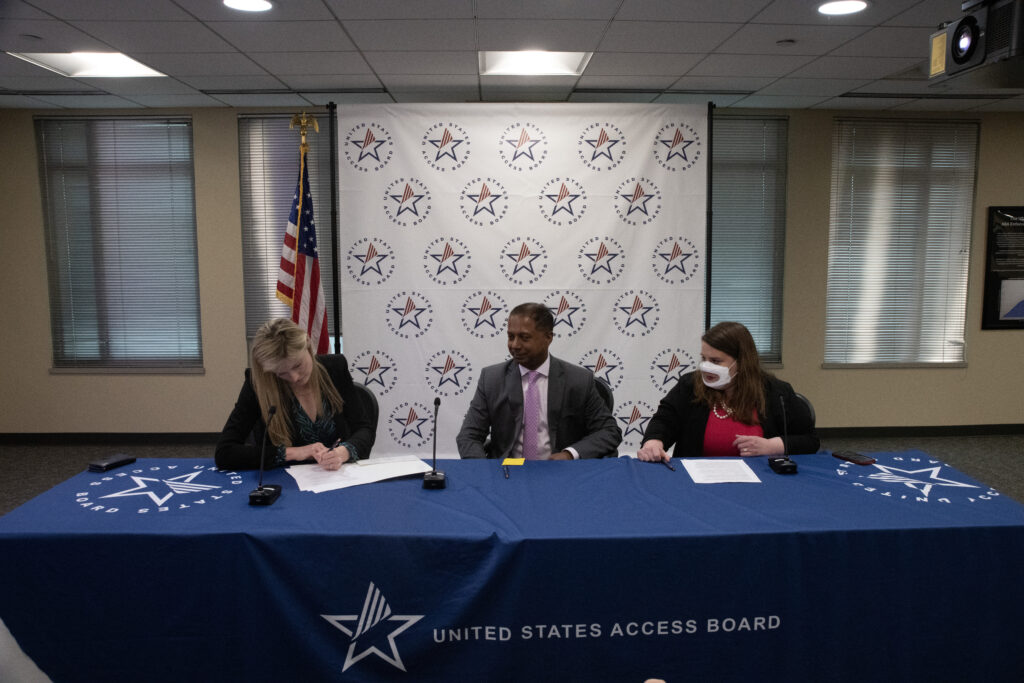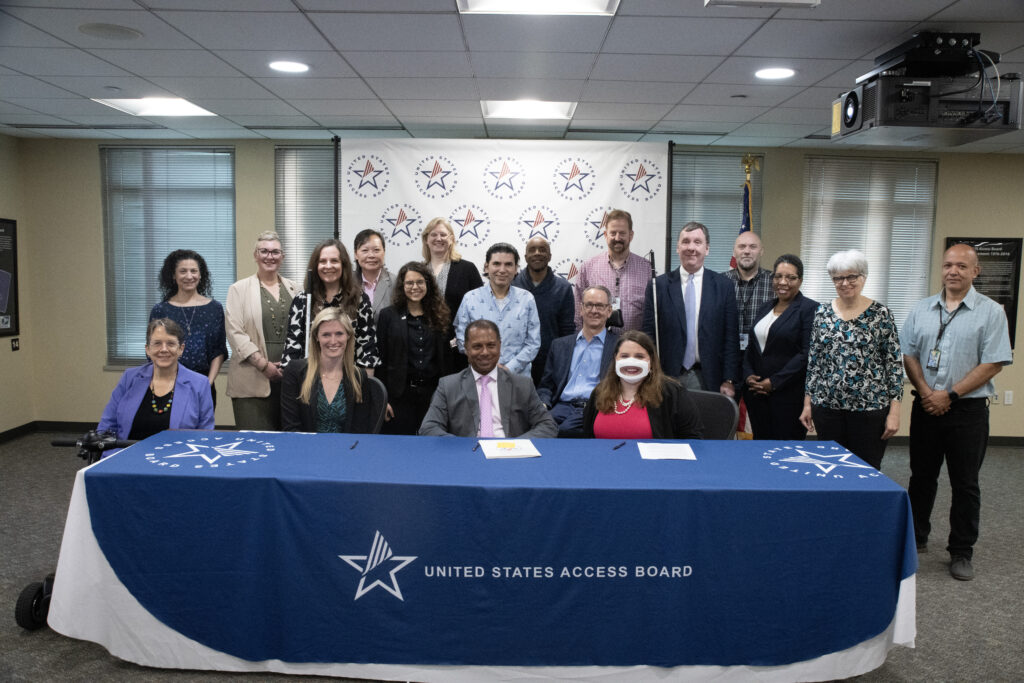CDT Launches Partnership with U.S. Access Board and AAPD to Support Disability Community Engagement on AI
On May 15, CDT entered into a Memorandum of Understanding with the U.S. Access Board and the American Association of People with Disabilities (AAPD) to help advance the interests of disabled people in the design and governance of AI.
The Access Board is an independent federal agency that promotes equality for people with disabilities through leadership in accessible design and the development of accessibility guidelines and standards. The Biden Administration’s 2023 AI Executive Order urged the Board to engage the disability community on AI issues, and to produce technical assistance and recommendations on questions that particularly impact disabled people.
The Memorandum of Understanding establishes that CDT and AAPD will assist the Access Board in its work, helping to ensure that the disability community is engaged and supported through education and resources related to AI. Key activities will include:
- Establishing opportunities that promote solidarity, relationship-building and information sharing across disability and technology communities.
- Identifying and developing possible solutions to potential or existing civil rights concerns, accessibility barriers, and risks of AI.
- Providing information, technical assistance, and access to resources that will enable disability and technology communities to promote and create safe, equitable, and accessible artificial intelligence.
The Access Board press release further describes the details of the partnership.

Speaking at a signing ceremony held at the Access Board’s office in Washington D.C. on Wednesday, CDT’s CEO Alexandra Reeve Givens shared the following remarks:
Thank you Director Pavithran, Access Board staff and our longtime allies at AAPD for embarking on this partnership today. My organization, the Center for Democracy & Technology, focuses on protecting people’s rights and our democracy in the digital age. Our mission is to ensure that technology serves to empower and connect people, while protecting against its potential risks and misuses. The need for that mission is clear in the rapid developments we’re seeing in AI.
AI holds enormous potential to improve accessibility, facilitate communication, and help people with disabilities access new opportunities. At the same time, AI is increasingly being used in high-stakes areas that can significantly impact people’s lives. AI systems are already being used, today, to help decide who is hired for a job, who is approved for a loan, and who is eligible for parole. They’re influencing the amounts people receive in public benefits and decisions in the healthcare sector.
Time and again, we have seen these systems go wrong – making decisions about people based not on their own merits, but on inferences about them and how they stack up against the model on which the AI system was trained. AI systems are trained to make predictions and recommendations based on patterns in existing data: by their very design, they don’t account well for human variation and outliers from a perceived, statistical “norm”. For these reasons, it is essential that AI conversations consciously center issues of representation, equity and bias. If an AI system is built or used without examining its suitability for the task at hand, whether it works fairly for everybody, AI will entrench inequality and harm people in some of the most important aspects of their lives.
At CDT, we’re deeply focused on this issue: how to ensure the responsible design, use, testing and legal accountability for AI systems. We’re also focused on ensuring that the accessibility and convenience gains of AI tools – such as the value of text-to-speech translation, or image description tools – don’t come with inequitable costs. Too often, apps and services offer features to disabled people without appropriately protecting their users’ privacy. Too often, apps and services claim to offer an accessibility boon – like automated captioning – without acknowledging that the tool’s error rates make it virtually unusable for the disabled users they’re claiming to help.
As more companies lean into AI to support accessibility and inclusion, we need to welcome and embrace this moment while ensuring AI tools truly serve the needs and interests of disabled users. To do this, we have to empower people who are affected by AI systems to have a voice in how AI tools are built, used, and regulated.
We’re delighted that the Access Board is taking a leadership role in this effort. The Board’s focus on building relationships between disability and technology communities, providing technical assistance, and identifying solutions to advance responsible AI is exactly what this moment calls for. I hope that, together, we can get many more organizations, companies and individuals to participate in this effort, and also drive engagement by other relevant agencies across government.
We’re excited to join with our long time ally the American Association of People with Disabilities in support of this work, and we greatly look forward to the partnership. Thank you!
